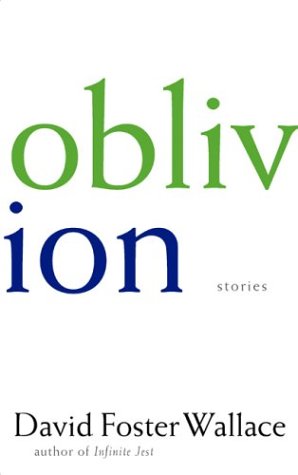In this sense, readers who pick up Oblivion looking for plot will be disappointed. It takes 20 pages for many of these tales to take shape. The title story is nominally about a man who goes to a sleep clinic and discovers that everything he thought about himself was a lie; “The Suffering Channel” is about a sculptor whose preferred medium was excrement. These are the two most straightforward pieces in the bunch, so if that's what you're looking for, start there.
But if you want to jump in at the deep end, start with “Mr. Squishy,” which begins with a focus group sitting at a conference room eating baked goods, then veers into a highly technical riff on the circular logic of targeting consumers. In the middle of this we get brief glimpses of the sad inner life of the facilitator, Terry, a middle-aged man who fantasizes about making “damp lisping slapping sounds” with his co-worker Darlene on a conference room table.
Unlike more traditional writers, Wallace uses the short story form to explore the failures of language. At the beginning of these pieces, his sentences are of manageable length. They set up a scene, establish a voice and suggest a narrative will develop. Slowly, however, Wallace's prose begins expanding, twisting, turning in on itself with ellipses and footnotes that dramatize his anxiety about the pitfalls of language. As one protagonist explains: “[M]any of the most important impressions and thoughts in a person's life are ones that flash through your head so fast that fast isn't even the right word, they seem totally different from or outside of the regular sequential clock time we all live by, and they have so little relation to the sort of linear, one-word-after-another-word English we all communicate with each other that it could easily take a whole lifetime just to spell out the content of one split second's flash of thoughts and connections, etc.”
And that's just part of one sentence. The real joy of reading these stories, then, is not having Wallace ferry us from point A to point B, but in watching his reptilian intelligence slither across the page, flick out its tongue and nab yet another linguistic fly off the wall. Our language is possessed by the devils of fakery, these stories suggest, and by stretching it to the absolute limit, Oblivion tries mightily to exorcise those demons.









